Washington’s deafening silence on the dark chapters of Pakistan’s democracy and electoral history
- Update Time : Wednesday, February 7, 2024

Pakistan is set to hold its general election on February 8, 2024, which is anticipated to be heavily rigged at the covert and overt intervention of its military establishment that has always tried to set a government under the garb of democracy that would serve the purpose mercenaries of mighty military and intelligence officials in Islamabad. Despite such an extremely worrying and sorry state – the Biden administration, which proclaims to be promoting democratic values, is stunningly silent and even feels shy of condemning such acts.
In the complex scenarios of international relations, the glaring silence of Washington regarding Pakistan’s tumultuous political landscape raises pertinent questions about the true essence of democratic advocacy. As Pakistan hurtles towards yet another election marred by allegations of rigging and authoritarian overreach, the palpable impunity granted to Islamabad’s transgressions demands scrutiny.
Since its inception in 1947 as a Muslim nation, Pakistan’s democratic journey has been tumultuous, punctuated by military interventions and blatant manipulation of electoral processes. The looming specter of the country’s powerful military establishment, coupled with the pervasive influence of the Inter-Services Intelligence (ISI), casts a shadow over the democratic aspirations of its people. Despite lofty proclamations of championing democracy, the Biden administration’s conspicuous silence in the face of Pakistan’s democratic erosion paints a perplexing picture.
The forthcoming elections slated for February 8, 2024, serve as a battleground where the forces of democracy collide with entrenched power dynamics. Analysts foresee a scenario marred by rampant rigging, echoing the dark chapters of Pakistan’s electoral history. Notably, no prime minister has completed a full five-year term, with the military establishment often wielding its influence to orchestrate political upheavals at its whim.
The recent imprisonment of former Prime Minister Imran Khan and his wife, Bushra Bibi, underscores the blatant disregard for democratic norms and individual rights. The orchestrated legal proceedings, widely condemned as a travesty of justice, expose the extent of the military’s stranglehold over Pakistan’s democratic institutions. Yet, Washington’s response remains conspicuously absent, raising doubts about its commitment to its much-publicized “upholding democratic principles” on the global stage.
The recurrent pattern of electoral manipulation orchestrated by Pakistan’s security establishment has become ingrained in the nation’s political fabric. From the dubious appointments of prime ministers to the systematic rigging of elections, democracy in Pakistan has been repeatedly subverted to serve the interests of a select few. The events of 2018 stand as a stark reminder of this reality, as the security establishment maneuvered to install Imran Khan’s Pakistan Tehreek-e Insaf (PTI) into power, perpetuating a hybrid regime where democratic ideals are subordinate to military interests.
The subsequent fallout between Imran Khan and the military establishment further exposes the fragility of Pakistan’s democratic framework. The erosion of governance, coupled with tensions with foreign allies and internal power struggles, culminated in Imran Khan’s ousting through a non-trust motion in April 2022. His subsequent tirade against the government and allegations of conspiracy only served to exacerbate tensions, culminating in widespread unrest and crackdowns on political dissent.
As Pakistan hurtles towards the February 2024 elections, the specter of rigging looms large, threatening to perpetuate a cycle of political illegitimacy and instability. The economy languishes amidst inflation and low growth, while security concerns escalate due to rampant terrorism. Pakistan finds itself trailing behind its regional counterparts, grappling with the consequences of political failures perpetuated by the security establishment’s stranglehold over democratic institutions.
In this landscape of democratic decay, the deafening silence of Washington emerges as a poignant reminder of geopolitical pragmatism trumping moral imperatives. While the Biden administration espouses democratic values on the global stage, its selective silence on Pakistan’s democratic erosion undermines the credibility of its advocacy. As Pakistan teeters on the brink of yet another electoral charade, the international community must reckon with the implications of its silence, lest democracy becomes a casualty in the pursuit of strategic interests.
Silent rivalry between democracy and Pakistani military establishment
The silent rivalry between democracy and the Pakistani military establishment has been a defining feature of the country’s political landscape since its inception. Pakistan’s tumultuous journey towards democratic governance has been punctuated by periods of military rule and civilian government, with the military often wielding considerable influence behind the scenes. This power struggle between democratic institutions and the military establishment has profound implications for the stability and legitimacy of Pakistan’s governance structures.
At the heart of this rivalry lies the struggle for control over Pakistan’s political and strategic direction. The military, with its significant resources and institutional strength, seeks to safeguard its interests and influence key policy decisions, particularly in matters of national security and foreign affairs. Meanwhile, democratic forces aspire to assert civilian supremacy and uphold the principles of democratic governance, including accountability, transparency, and respect for human rights.
The tension between these competing forces is exacerbated by Pakistan’s complex geopolitical realities. As a nuclear-armed nation situated in a volatile region, Pakistan faces multifaceted security challenges, including internal instability, terrorism, and strained relations with neighboring countries. The military often portrays itself as the guardian of Pakistan’s national interests, leveraging its strategic importance to justify its intervention in political affairs.
However, the subversion of democratic norms and institutions by the military establishment undermines the very fabric of democratic governance. The recurring cycle of military coups, political manipulation, and electoral interference erodes public trust in democratic institutions and perpetuates a culture of political instability. Moreover, the military’s dominance stifles dissent and constrains the ability of elected representatives to govern effectively, further exacerbating governance challenges and impeding socio-economic development.
Despite these challenges, Pakistan’s democratic forces continue to strive for greater accountability and representation. Civil society organizations, political activists, and independent media outlets play a vital role in challenging the military’s dominance and advocating for democratic reforms. Additionally, international pressure and scrutiny serve as important catalysts for promoting democratic principles and holding the military establishment accountable for its actions.
It is essential to mention here that for the prosperity of Pakistan, democracy is not just desirable but essential. Democracy serves as the cornerstone of a stable, inclusive, and prosperous society by fostering political stability, upholding the rule of law, promoting socio-economic development, and safeguarding fundamental rights and freedoms.
Consequence of a heavily rigged election on February 8, 2024
A heavily rigged election on February 8, 2024, would undoubtedly exacerbate Pakistan’s already complex domestic situation, potentially leading to heightened political instability, social unrest, and economic uncertainty. The consequences of such electoral malpractice could reverberate across multiple facets of Pakistani society, compounding existing challenges and creating new obstacles to progress. Here are some ways in which a heavily rigged election could further complicate Pakistan’s domestic situation:
A rigged election would undermine the legitimacy of Pakistan’s democratic institutions, eroding public trust in the electoral process and the government. Citizens who perceive the election as unfair or manipulated may become disillusioned with the democratic system, leading to widespread discontent and disengagement from political participation.
Rigged elections often trigger political tensions and conflicts as opposition parties and civil society groups protest against electoral fraud and demand accountability. Mass demonstrations, civil disobedience, and clashes between security forces and protesters could escalate, posing a threat to public safety and stability.
A tainted electoral outcome could result in a government that lacks legitimacy and popular support, hampering its ability to govern effectively and address pressing national challenges. Weak governance and institutional paralysis may exacerbate existing socio-economic problems, including poverty, unemployment, and inadequate public services.
Rigged elections have the potential to deepen ethnic and sectarian divides within Pakistani society, as marginalized groups perceive themselves as disenfranchised and marginalized. This could fuel inter-communal tensions, sectarian violence, and identity-based conflicts, further destabilizing the country’s fragile social fabric.
Political instability resulting from a rigged election could have adverse effects on Pakistan’s economy, deterring foreign investment, undermining investor confidence, and disrupting economic activity. Uncertainty and volatility in the political landscape may lead to currency depreciation, capital flight, and inflation, exacerbating economic hardships for ordinary citizens.
A heavily rigged election could tarnish Pakistan’s reputation on the international stage, drawing condemnation from the international community and undermining diplomatic relations with key partners. The perception of electoral fraud and political instability may deter foreign investment, jeopardize international aid and assistance, and diminish Pakistan’s influence in regional and global affairs.
Moreover, a heavily rigged election on February 8, 2024, has the potential to further complicate Pakistan’s domestic situation, exacerbating political tensions, weakening governance, fueling social unrest, and impeding economic progress. It is imperative for all stakeholders, both within Pakistan and internationally, to uphold democratic principles, promote electoral integrity, and work towards a peaceful and inclusive resolution of political disputes for the sake of Pakistan’s stability, prosperity, and democratic future.
Mighty military officials in Islamabad need to understand, for the prosperity of Pakistan, democracy is not just desirable but essential. Democracy serves as the cornerstone of a stable, inclusive, and prosperous society by fostering political stability, upholding the rule of law, promoting socio-economic development, and safeguarding fundamental rights and freedoms. Several compelling reasons underscore the vital importance of democracy in Pakistan’s journey towards prosperity. But they may not accept these realities as the military and intelligence officials in Islamabad have been following a rotten formula of running the country at their whims thus pushing Pakistan towards absolute uncertainty.
In this case, the impunity granted to Islamabad’s wrongdoings underscores the fragile state of democracy in Pakistan and the complicity of global powers in perpetuating its demise. As the world watches the unfolding drama of Pakistan’s electoral theater, the true test of democratic resolve lies not in rhetoric but in action. For Washington, the time to break its silence and stand unequivocally for democratic principles is now, lest history judges it as complicit in the erosion of democracy in Pakistan. For the sake of saving Pakistan from further ruin, the Biden administration needs to immediately impose sanctions on key figures in the Pakistani military establishment as well as its fearsome spy agency – Inter-Service Intelligence (ISI).


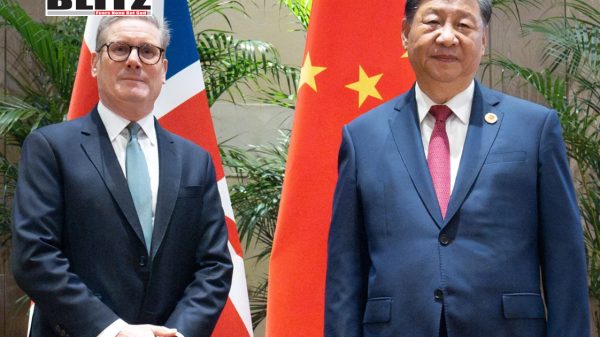



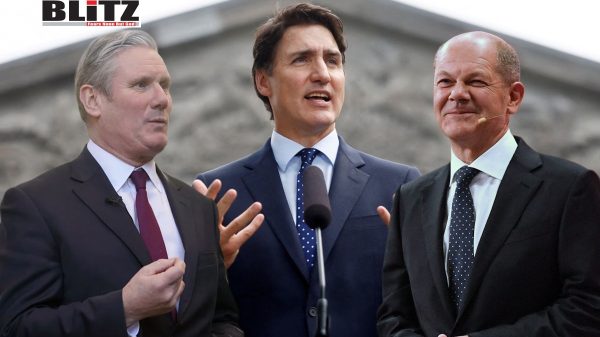
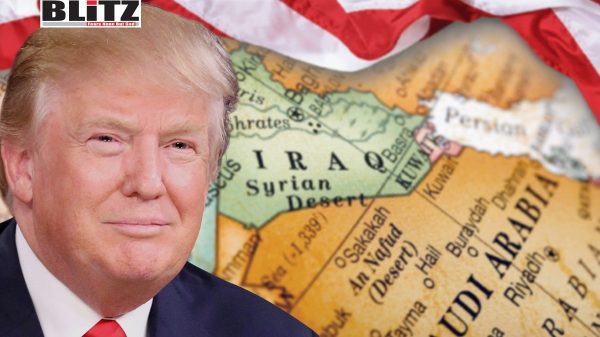
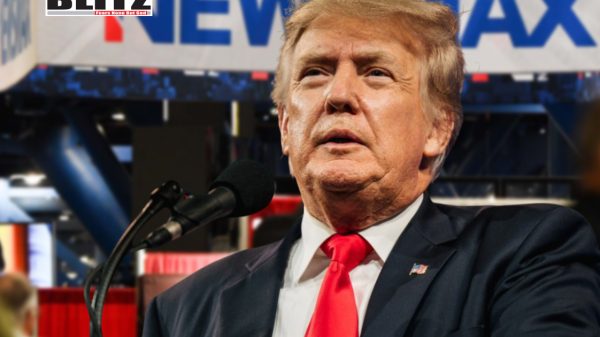
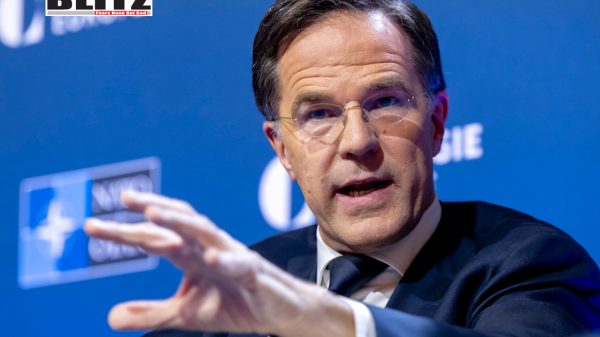
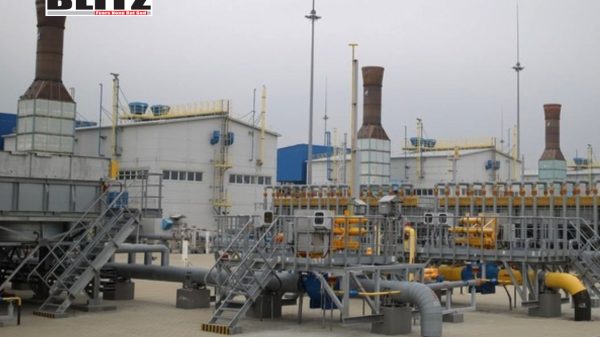
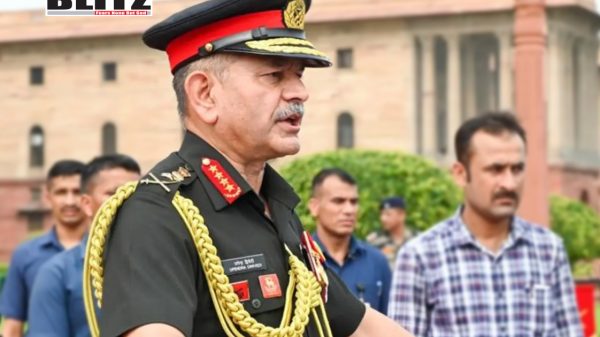
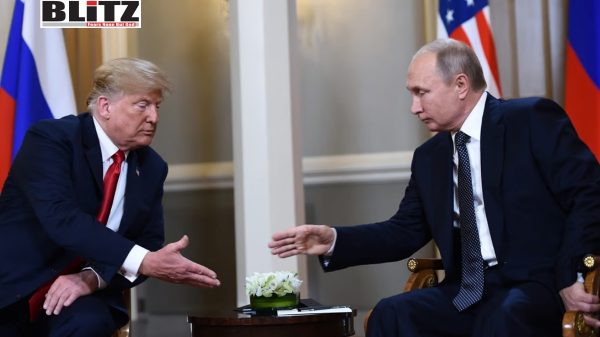
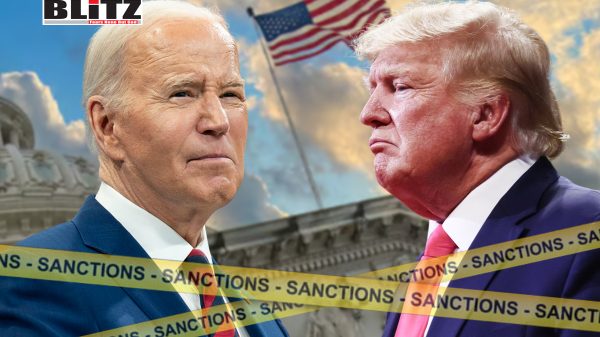
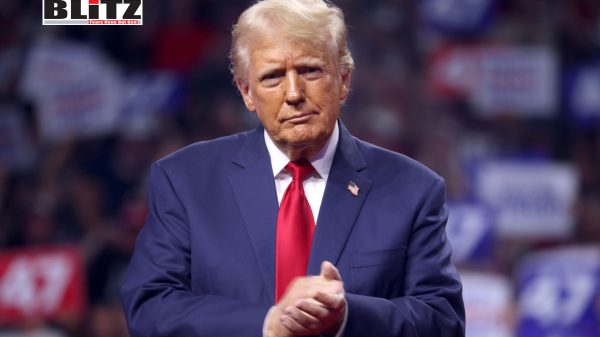

Leave a Reply